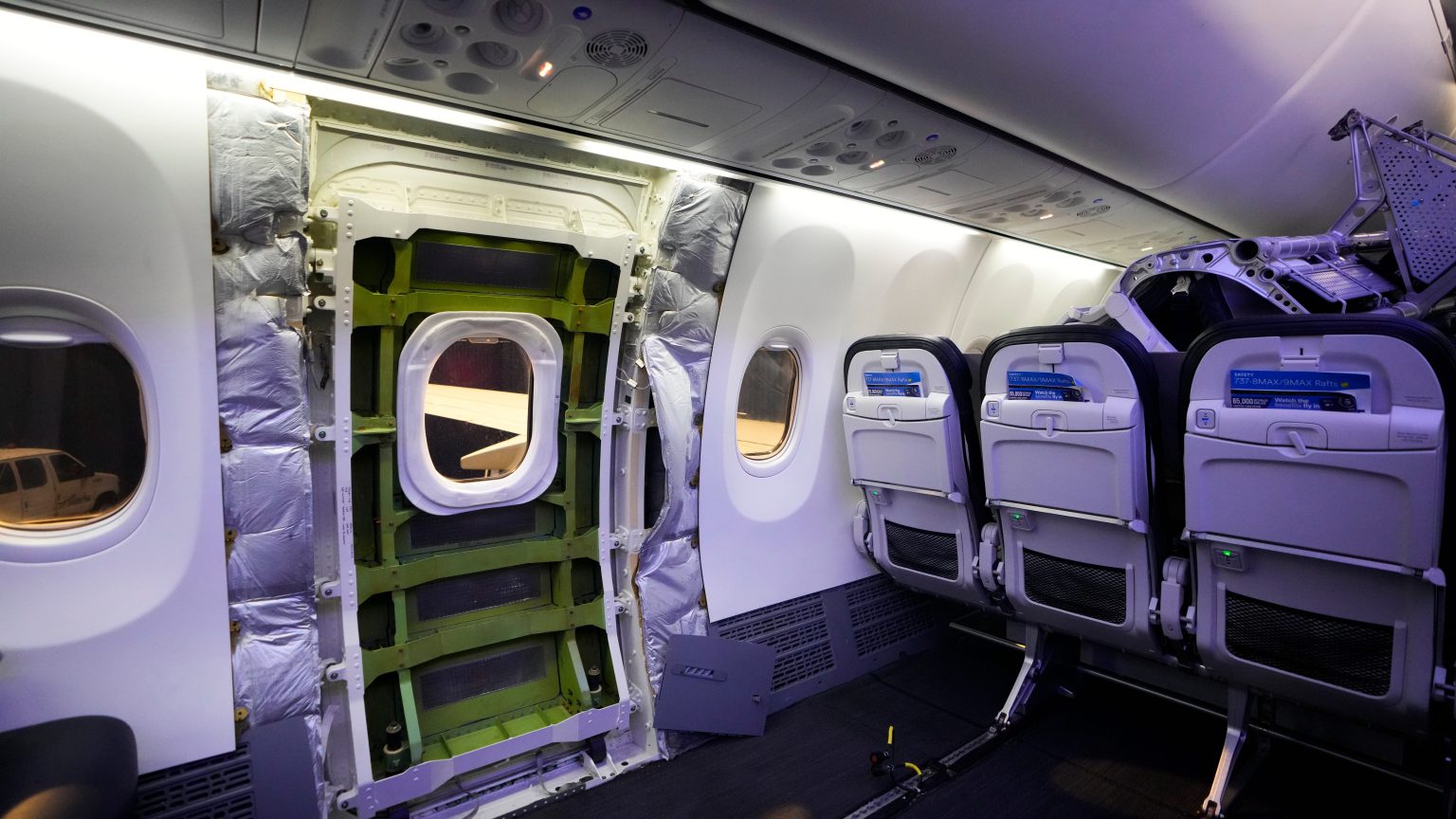An NTSB report revealed that bolts were missing at the time of an Alaska Airlines door plug blowout, involving a Boeing aircraft. Alaska Air Group has received $61 million in supplier credit memos from Boeing as additional compensation for the temporary grounding of 737 MAX 9 jets. This is in addition to the $162 million in compensation that the airline had already received in cash from Boeing. The incident occurred in January, when an Alaska Airlines-operated MAX 9 jet experienced a mid-air cabin panel blowout, leading to the temporary grounding of 171 aircraft by the FAA for about three weeks. The credit memos can be used for future purchases at Boeing, and the airline mentioned that Boeing is also compensating United Airlines for the financial damages related to the grounding.
In response to the incident involving the missing bolts during the blowout, Boeing has provided compensation to Alaska Airlines and United Airlines to address the financial losses they incurred due to the temporary grounding of the 737 MAX 9 aircraft. United Airlines, a prominent customer of Boeing, had to temporarily suspend service on all 79 of its 737 MAX 9 aircraft, resulting in a $200 million impact in the first quarter. This compensation is important for both airlines to cover their losses and recover from the financial hit caused by the grounding. The grounding of the 737 MAX 9 aircraft was a significant event that affected multiple airlines, highlighting the importance of addressing safety concerns and ensuring proper maintenance to prevent such incidents in the future.
The NTSB report into the Alaska Airlines door plug blowout sheds light on the missing bolts that were identified as a contributing factor to the incident. The investigation into the cause of the blowout is crucial for preventing similar incidents in the future and improving safety measures for Boeing aircraft. The report provides valuable insights into what went wrong during the incident and the steps that need to be taken to prevent similar occurrences in the future. Identifying the root cause of the problem and addressing any underlying issues is essential for ensuring the safety of passengers and crew aboard Boeing aircraft.
Alaska Airlines’ receipt of supplier credit memos from Boeing serves as additional compensation for the impact of the temporary grounding of the 737 MAX 9 jets. The credit memos are valued at $61 million and can be used for future purchases at Boeing, providing the airline with flexibility in its operations. In addition to the credit memos, Alaska Airlines had already received $162 million in cash compensation from Boeing in the first quarter. This financial support is important for the airline to recover from the losses incurred due to the grounding of the MAX 9 jets and resume normal operations. Boeing’s compensation to Alaska Airlines reflects a commitment to supporting its customers and addressing any issues that arise with its aircraft.
In conclusion, the NTSB report into the Alaska Airlines door plug blowout, coupled with Boeing’s compensation to the airline and to United Airlines, highlights the importance of addressing safety concerns and ensuring proper maintenance of Boeing aircraft. The incidents involving missing bolts during the blowout underscore the need for thorough investigations and improvements in safety measures to prevent similar occurrences. Boeing’s financial compensation to its customers demonstrates a commitment to supporting their recovery from the impacts of the grounding of the 737 MAX 9 jets. Moving forward, it is essential for all stakeholders to work together to address safety concerns and prioritize the well-being of passengers and crew aboard Boeing aircraft.


